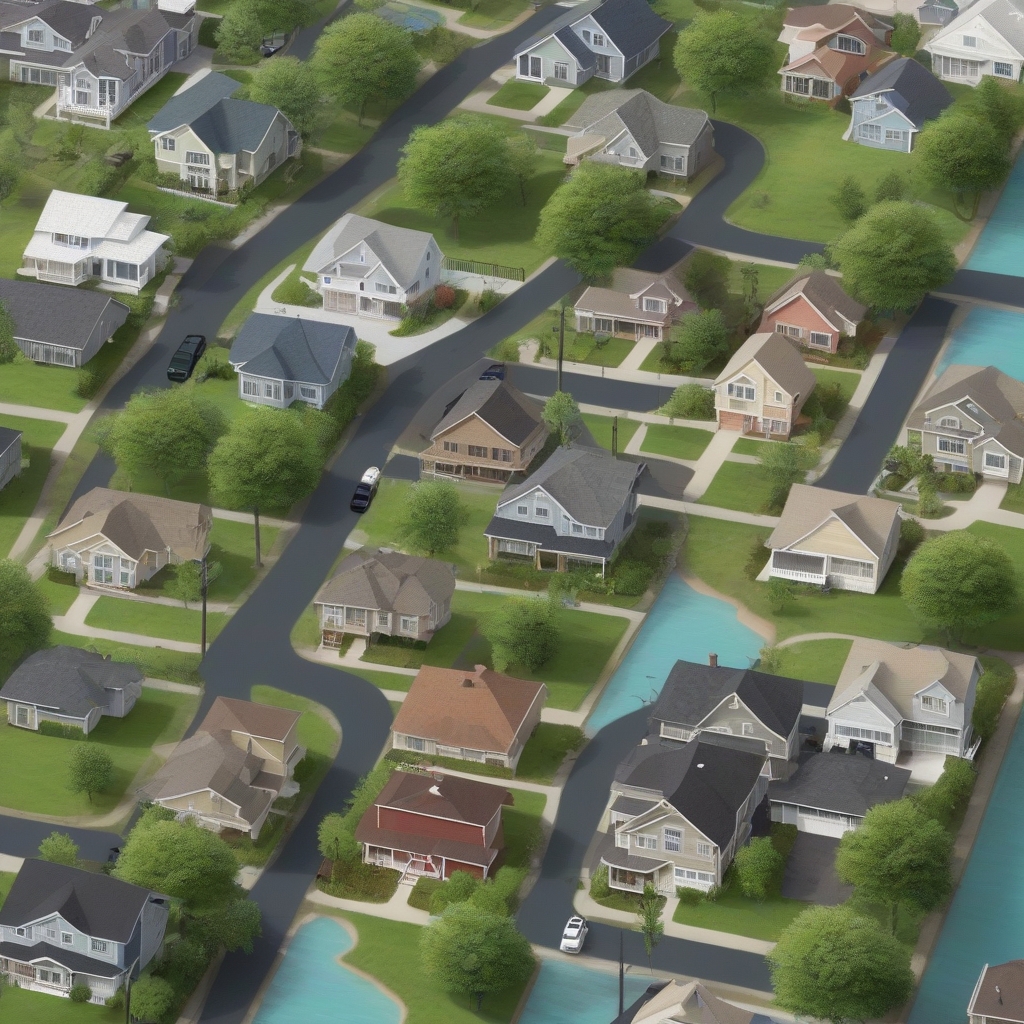/ Aug 16, 2025
Trending
LARealEstateBrief 2024.

The real estate market is no stranger to fluctuations, but the influence of climate risks has added a new layer of complexity to property values across the globe. As environmental concerns become more pressing, both buyers and sellers are faced with the challenge of weighing the natural beauty of coastal and environmentally sensitive areas against potential climate hazards. This article explores how climate risks are reshaping the real estate landscape, prompting stakeholders to reassess home values and market strategies.
Climate change has introduced a myriad of risks that directly affect property values. Coastal areas, once prized for their picturesque views and idyllic settings, are now under scrutiny due to rising sea levels and increasing storm intensity. These phenomena can lead to significant property damage, impacting both the desirability and insurance premiums of these homes.
The impact of climate risks on property values cannot be understated. Homeowners are finding their properties devaluing faster in high-risk areas, leading to increased difficulty in selling their homes. As a result, the real estate market in these regions is also becoming more volatile.
In response to these challenges, the real estate market is evolving. Here are some notable trends:
Both buyers and sellers must navigate this nuanced market carefully. As climate risks reshape the traditional valuation model, consider the following strategies:
Policymakers have a critical role to play in addressing climate risks in the real estate sector. By implementing forward-thinking regulations and providing incentives for sustainable development, they can help mitigate some of the market stresses caused by climate change. This includes developing comprehensive flood defenses, enhancing land-use planning, and promoting the adoption of green building techniques.
As the real estate market continues to adapt to the challenges posed by climate change, innovation and resilience will be key components of success. Stakeholders must remain informed and proactive, leveraging new technologies and models to anticipate and mitigate risks. This will not only protect property values but also contribute to a more sustainable and secure future for communities worldwide.
In conclusion, the impact of climate risks on real estate values underscores the need for a paradigm shift in the traditional approaches to property valuation and management. By acknowledging and addressing these challenges head-on, the real estate market can better adapt to an ever-evolving environmental landscape.
Get the latest LA real estate news, market trends, and expert tips. Subscribe for weekly updates to stay informed and ahead in the LA property market.
Copyright LARealEstateBrief. 2024. DRE license #02134518